
Oli Dugmore 4am - 7am
2 March 2023, 14:03 | Updated: 2 March 2023, 18:53
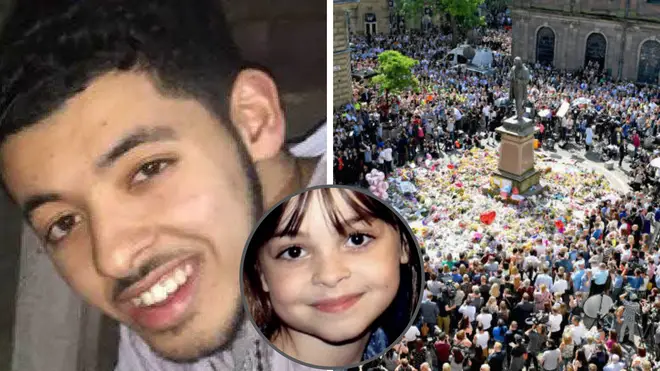
MI5 has apologised after a scathing report found security services missed a significant opportunity to take action on two significant pieces of intelligence that might have stopped the Manchester Arena terror attack in 2017.
Some 22 people were killed and hundreds more injured by a shrapnel-filled bomb set off by Islamist terrorist Salman Abedi at an Ariana Grande concert in May 2017.
The third and final stage of the inquiry by Sir John Saunders, which reported on Thursday afternoon, found that MI5 had missed an opportunity that might have prevented the terror attack taking place and that Abedi should have been referred to anti-terror programme Prevent. It also looked into how British-born Abedi was radicalised and who may have helped him.
MI5 director general said in response: "Having examined all the evidence, the chair of the Inquiry has found that 'there was a realistic possibility that actionable intelligence could have been obtained which might have led to actions preventing the attack.' I deeply regret that such intelligence was not obtained.
"Gathering covert intelligence is difficult - but had we managed to seize the slim chance we had, those impacted might not have experienced such appalling loss and trauma. I am profoundly sorry that MI5 did not prevent the attack...
"To all those whose lives were forever changed on that awful night: I am so sorry that MI5 did not prevent the attack at the Manchester Arena."
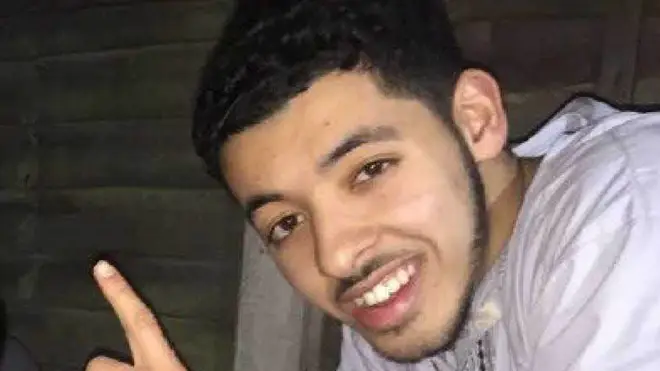
Responding to the report, Home Secretary Suella Braverman said the government, police and security services "would do everything possible to prevent a repeat of this horrifying attack." Branding the attack "callous and cowardly", Downing Street said the Government was committed to learning the lessons from the inquiry.
Manchester mayor Andy Burnham said the inquiry had made clear "that, both at national and regional level, the country was not prepared for a terrorist attack of this nature in a city like ours."
Caroline Curry, the mother of victim Liam Curry, said: "From top to bottom - MI5 to the associates of the attacker. We will always believe that you played a part in the murder of our children".
Lisa Rutherford, whose teenage son and daugher Liam and Chloe both died, said: "We've sat through eight weeks at the Old Bailey and over two years here at the inquiry. We've read countless statements, listened to hours of evidence, and we can only hope that one day the whole truth will come out and others, including the fugitive brother and parents, face justice.
"Because we will never believe they were in this alone. Forgiveness will never be an option for such evil intentions and those that played any part in the murder of our children will never, ever get forgiveness.
"From top to bottom, MI5 to the associates of the attacker, we will always believe you all played a part in the murder of our children."

MI5, whose agents were monitoring Abedi for years before the attack, came into possession of two pieces of information about him that they decided did not relate to terrorism.
Sir John Saunders, said having heard from MI5 witnesses at the hearings for the inquiry, that their assessment did not present an "accurate" picture.
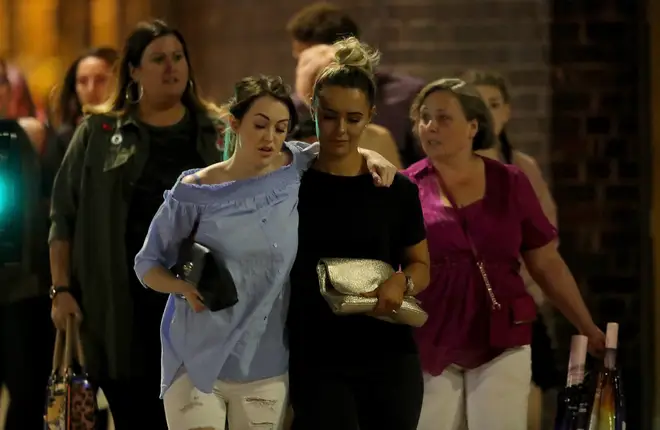
One officer admitted they considered raising a possible pressing national security concern regarding one of the pieces of intelligence but did not discuss it with colleagues immediately, and did not write up a report on the same day.
In his 207-page report, Sir John said: "The delay in providing the report led to the missing of an opportunity to take a potentially important investigative action.
"Based on everything the Security Service knew or should have known, I am satisfied that such an investigative action would have been a proportionate and justified step to take. This should have happened.
"Although I accept that Salman Abedi demonstrated some security consciousness and that this might have affected the efficacy of the investigative action that I have identified, there was the real possibility that it would have produced actionable intelligence."

Stepfather of Manchester bombing victim shares feelings on report
But he added that it is "impossible to say whether any different or additional action taken by the authorities could have prevented the attack. It might have done; it might not have done."
MI5 bosses gave evidence to the inquiry behind closed doors on the circumstances leading up to and surrounding the atrocity between September 7, 2020 and February 15, 2022.
The report also dealt with the radicalisation of Abedi, and the "significant part" that his parents and elder brother Ismail played in his becoming a terrorist. The parents, who have "each held extremist views", have since fled the country and did not take part in the inquiry.
They moved to Libya to fight in the civil war with Salman and his younger brother Hasheem in 2011, and stayed there for two years. "It is likely that [Salman and Hasheem] had some involvement in fighting during the civil war at that time," Sir John found.
Sir John said the Didsbury mosque, linked to the family, was probably not involved in his radicalisation, but added that the mosque had connections to both sides of the Libyan conflict, and that the evidence the mosque gave could have been more helpful.
One of the imams at the mosque was "detained in Libya amid claims that he had been fighting... an image of him in military fatigues had emerged.
"Then subsequently, the leadership of the mosque had to deal with a controversial sermon delivered by Mustafa Graf, which in one view, although not the only view, encouraged support for armed jihad in Syria and other parts of the Muslim world."
A contributor to the radicalisation part of the report said: “I have never seen such a complete picture of the Petri dish absolutely brimming with germs".
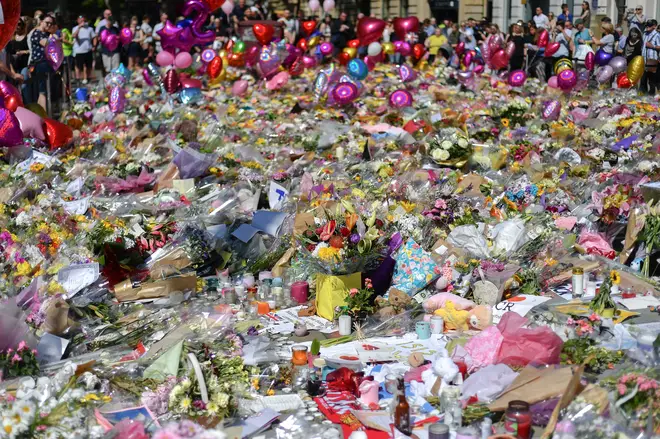
Abedi and his brother Hasheem, who was jailed for murder in 2020 for a minimum of 55 years, built the bomb using instructions posted online by the Islamic State.
"As much as possible needs to be done by the authorities to ensure that instructions for murder such as these are not put on the internet and if they are they remain there for the minimum amount of time," Sir John said.
He added that the authorities should keep the rules for buying chemicals under constant review. Sir John said: "That is not easy to achieve and it needs to be made clear that unusual purchases need to be reported promptly.
"None of the purchases of precursor chemicals obtained by the brothers were reported to the authorities. That is a situation which should not have arisen. Had they been reported it is possible that Salman Abedi could have been stopped."
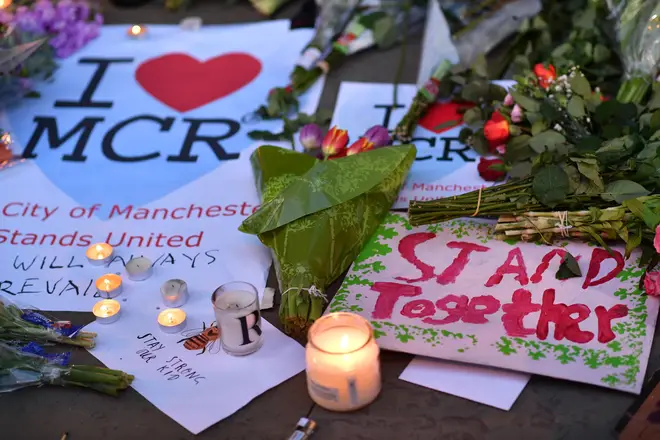
Richard Scorer, a lawyer who represented 11 of the families at the inquiry, said: "Today's report has been deeply painful to read, but also eye-opening.
"On the issue of the preventability of this attack, inevitably the report provides less information than we would have wanted. "But it is now very clear that there was a failure to properly assess key intelligence about Salman Abedi; a failure to put it into proper context, and - most catastrophic of all - a delay in acting on it.
"As a result of these failures, at the very least, a real possibility of preventing this attack was lost. This is a devastating conclusion for us.
"The failures exposed in this report are unacceptable. The public are entitled to expect that information of national security importance will be acted on speedily and, crucially, that the system will ensure that this happens. It must do so in the future."
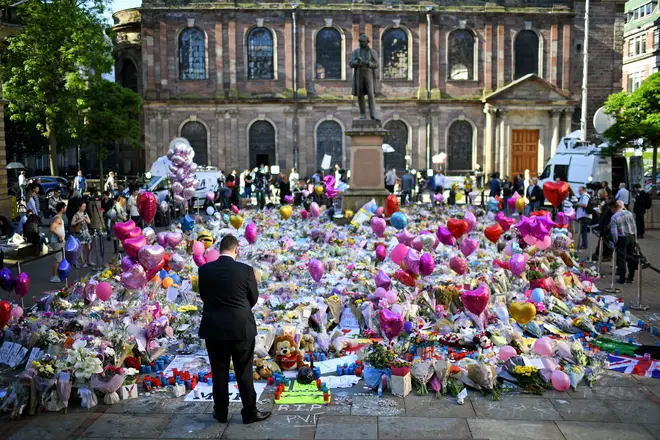
Helen Boniface, from law firm Hogan Lovells, who represented the bereaved families of Chloe Rutherford, 17, and Liam Curry, 19, said: "All we have sought from day one is the truth, an acknowledgment of the failures that occurred on the night and to ensure such errors don't happen again.
"We thank Sir John Saunders and his team for their efforts in trying to bring that truth out.
"We will never forgive the attackers, or those who assisted them, and nor can we forgive those professionals who failed to act appropriately on the night.
"Indeed, in this volume of the report, the chair has recognised that there was a significant missed opportunity by MI5 which, had they taken action, could ultimately have changed the course of what happened that night.
"We hope lessons really will be learnt this time. It has been five years, nine months, one week and one day since we lost our kids. Whilst nothing can bring Liam and Chloe back, we won't let them be forgotten."
Downing Street said the Government would "of course learn from this to ensure mistakes are not repeated".
They added that "we recognise - as the inquiry does - that dedicated officials and our security services and police work day and night to keep our country safe.
"But we know that today's findings will be a source of great sorrow for all those involved in this work."
The No 10 spokesman said Rishi Sunak's "thoughts are with the victims and survivors of the Manchester Arena attack, their families and loved ones and all those whose lives were changed forever that night".
He added: "All acts of terrorism are cowardly attacks on innocent people, but in targeting children and young people this attack is amongst the most callous and cowardly this country has ever experienced.
"This will be a very difficult day for many families and they should know that the thoughts of this country are with them and that we'll never forget those lives that were cruelly taken.
"We're committed to learning the lessons of this inquiry and doing everything in our power to strengthen the country's defences and keep British people safe."
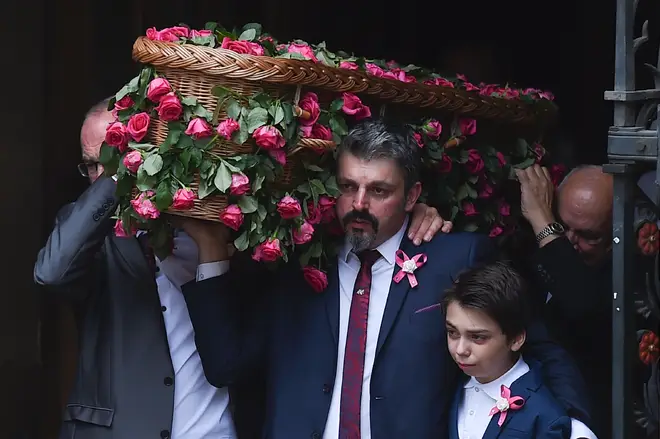
It comes after Andrew Roussos, father of Saffie-Rose, 8, spoke out ahead of the release of the final report on the terror attack, claiming the security services let Abedi "slip through the cracks" and had "blood on their hands". Abedi had been known to Mi5 for three years before the attack.
The terrorist became a subject of interest (SOI) for MI5 because he had been in phone contact with another SOI - but his case was closed four months later when he was deemed "low risk".
Abedi was identified as being in direct contact with three SOIs between December 2013 and January 2017.
One was suspected of planning to travel to Syria, one had links to al Qaeda and the third had links to Libyan extremists.
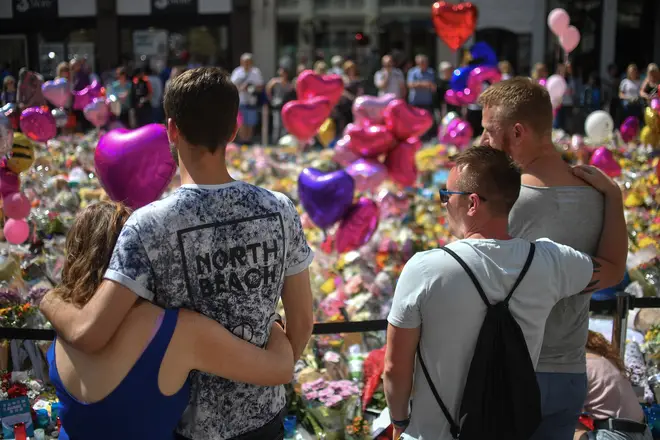
Abedi was identified as a contact of a contact of three more SOIs between April 2016 and April 2017. All of them had suspected links to ISIS.
MI5 were given two more pieces of information about Abedi, but agents decided they were not related to terrorism and did not pass them onto police.
A later review found in retrospect that the information could be seen to have been very relevant to his later attack.
Mr Roussos said: "Salman Abedi should have been stopped before he got to that arena and that's MI5's job.

Manchester Arena victim: Hashem Abedi 55 year sentence isn’t enough
"They know the threat, they know what these people do and don't do, they know where to look and not to look, and they were more prepared than what Manchester was that night - so MI5, for me, have got blood on their hands," he told Sky News.
Mr Roussos added: "I want them to admit that with all the signs and what they knew about this family and Salman Abedi that they let it slip through the cracks, because they did."
Abedi's name also hit a "priority indicator" during a separate "data-washing exercise" as falling within a small number of former SOIs who merited further consideration. A meeting to consider the results was scheduled for May 31 2017, nine days after the bombing.
During the inquiry, a number of MI5 witnesses - including a senior officer known as Witness J - and detectives from North West Counter Terrorism Police gave evidence behind closed doors.
The secret sessions were held so as not to compromise national security and the inner workings of MI5 and counter-terror police. A summary of some of the evidence was later made public, but the "gist" did not reveal any further details about the intelligence received by M15 in the months before the attack.

How two brothers spent four months planning Manchester Arena bombing
The scathing second stage of the inquiry found in November 2022 that emergency services could have done more to keep Saffie-Rose and another woman alive.
Saffie-Rose did not die for an hour after Abedi's bomb exploded. Mr Roussos said he did not accept the emergency services' apologies.
It comes after retired judge Sir John found in another stage of the inquiry in June 2021 that security company Showsec, the arena’s operator SMG, and the British Transport Police (BTP) were "principally responsible for the missed opportunities" on the night of the attack along with individual failings.
Jonathan Hall, the independent reviewer terrorism legislation of Hall, told LBC that there were “inexcusable errors” adding: “You have other inquests like the Fishmongers’ Hall inquiry where the failures are really to put together information, to combine information from MI5, from probation, prisons and the like."
"Here it wasn’t about a failure to combine information, it was a failure to see what was actually there."“That’s the real lesson for me which is that sometimes stopping terrorism is about seeing what is there in front of you and what happens at ground level”
One of the individual failings Sir John found was that a guard was afraid to report Mr Abedi for fearing of seeming racist.
Mr Hall said: “I think that’s about confidence. We can all see that you might spot someone and think ‘oh look, they look suspicious’.
"It then requires the confidence to go and report it and I think the absence of the police on the ground was really serious from that point of view because even if an individual might find it hard to tackle another member of the public, they could have gone to the police who do have that confidence".